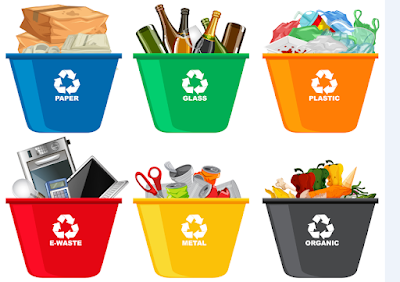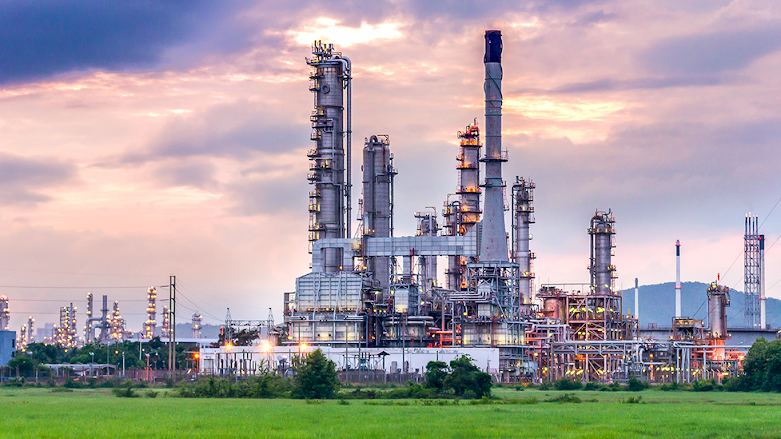What are the Most Dangerous Trash Items Polluting the Environment?
Insufficient waste disposals are one of the most prominent and pressing problems that affect our planet. Even with high awareness of the global benefits of environmental sustainability, and improvements each year, we have a long way to go in terms of reversing the impacts of rampant pollution.
In recent years there has been an increase in global plastic production amounting to 270-275 million tons but the pace of employing proper, sustainable waste solutions has not kept up.
We must urgently spread awareness for proper and effective waste management especially regarding the types of waste that are most threatening to the environment. Here are some of the dangerous trash items currently polluting our planet, as well as the most suitable methods to dispose of them.
Plastic caps and bottles
There are alarming environmental statistics regarding cap and plastic bottles pollution. The bottom line is that to spare the planet from the tens of billions of plastic caps and bottles that pollute the planet every year, they need to be properly recycled. Here are some tips you may not be aware of:
- Any plastic bottle with a recycling number 1, 2, or 5 is suitable for curbside recycling
- Recycle any excess packaging they were initially packaged with
- Crush them before disposing of them in recycling bins
- Leave the caps on your plastic bottles
Food packaging
Disposable coffee cups, Styrofoam to-go containers, fast food burger wrappers, and others forms of food packaging wind up being improperly disposed of and destined to end up in landfills. In fact, out of all the municipal solid wastes produced in the US, more than 63 percent of that waste stemmed from packaging materials for food and other products. Only 35 percent of that packaging waste was properly composted or recycled.
A difficult challenge for properly disposing of various types of food packaging is that they can’t all be lumped together in terms of throwing away or recycling in the garbage. For example, the following common food packaging materials must not be mixed in with recycling:
- Six-pack rings
- Candy bar wrappers
- Chip bags
- Pre-washed salad mix bags
- Frozen food bags
- Compostable/Degradable bags or film packaging
Those items should not be disposed of in your curbside recycling bin and must either be dropped off at specific locations or recycling centers or sorted out by professional waste management services.
Plastic shopping bags
Here are just a few concerning statistics regarding our usage of plastic shopping bags:
- Around 100,000 marine lives are taken by plastic shopping bag pollution each year.
- An estimated 1% of plastic shopping bags are reused or returned for recycling.
- An American family on average accumulates around 1,500 plastic shopping bags every year.
- Americans use more than 100 billion plastic shopping bags each year, which requires an estimated 12 million barrels of oils to produce.
The alarming statistics regarding plastic shopping bags go on and on. The essential thing to keep in mind is how to properly dispose of them. If you find #2 or #4 plastic symbols on any plastic shopping bags you obtain, those bags are completely recyclable. Many retail outlets and grocery stores also accept plastic shopping bag returns. Best practice is to reuse the plastic bags you have as much as possible and ask for paper shopping bags or bring your own reusable bags while shopping.
Cigarette butts
Even if you do not smoke cigarettes, it is essentially all but guaranteed that you’ll come across a few, if not a few dozen, littered on the ground when you are out and about. While many may assume that containers or plastic bottles would be the most common form of plastic pollution worldwide, the right answer is cigarettes. Butts or cigarette filters not only contain plastic in them but are officially the most common form of littered plastic in the world. An estimate shows 4.5 trillion cigarette butts are currently polluting our planet.
Something that makes cigarette butts even more concerning is that if you do not dispose of them properly, the outcome is toxic. The consequences range from their lead and arsenic ingredients to their lethal chemicals that impact marine life and water supplies. The least you can do if you are a smoker is to throw your cigarettes away in the trash, instead of flicking them out onto the sidewalk or street since cigarette butts can take anywhere from 18 months to 10 years to organically break down.
How CWE functions
Although this article is general interest about pollution, it affects all of us on the planet. As waste handles, CWE cares about making the planet as clean and as safe as we can, for our generation and those who follow.
CWE handles mainly industrial waste, so if you or your company has industrial waste needs, please consider our solutions. At CWE, applying innovation, long-term expertise, and technological prowess, we endeavor to creatively provide our clients, associates, and the community with the peace of mind of knowing that their waste materials are being managed with the utmost safety, compliance, and nurture for the environment. Our passion is your peace of mind. Contact us for any of your industrial waste disposal needs. We remind all prospective customers that we are fully insured for transportation.




Comments
Post a Comment